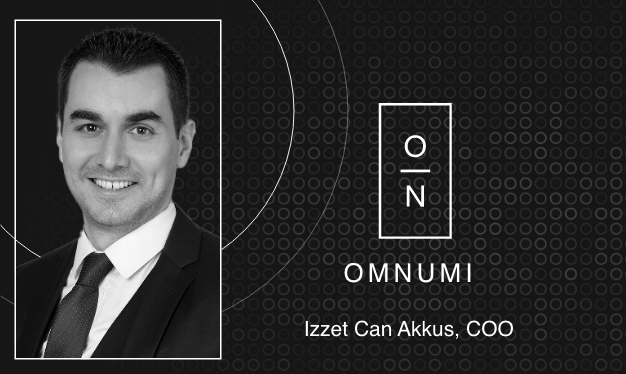With Omnumi out of stealth mode, we sat down with Interim COO Izzet Can Akkus (Can) to chat about the wallet-as-a-service platform — from its special blockchain to its benefits for businesses and governments as well as the new company’s future roadmap.
Can is a Wharton and Promontory Financial Group alum with deep experience in financial services as well as building and implementing smart operating models. Along the way, he discovered digital assets, and is now leveraging the collision of those two worlds to help build the financial platforms of tomorrow.
The following is a truncated and edited version of that conversation.
Why don’t you start by telling us a little bit about yourself!
Can Akkus: I’m currently the Head of Strategy at Hard Yaka and Interim COO of Omnumi. I’m originally from Istanbul, Turkey, but I moved to the U.S. in 2007 to get my master’s degree; I’ve lived here ever since.
In the world of digital assets, I saw not only a booming industry but also technological innovations that had the potential to transform the way financial services could operate.
I began my career in consulting at shops like Deloitte and Slalom Consulting, where I helped design and implement efficient operating models with a focus on financial services. Eventually, I ended up at Promontory Financial Group. During that time, Promontory built out their digital assets business. We had a lot of clients who were pursuing a bank license or looking to manage their risk and compliance due to increasing regulatory oversight.
In the world of digital assets, I saw not only a booming industry but also technological innovations that had the potential to transform the way financial services could operate.
During the pandemic, I pursued an Executive MBA at Wharton, with a focus on meeting investors and founders in the digital asset space. That’s how I met the people behind Hard Yaka, many of whom are Promontory alum. It was the perfect fit. Upon joining the Hard Yaka ecosystem, I partnered up with Kirk Chapman to help build and launch Omnumi.
Every solution needs a problem. What is Omnumi trying to solve?
Traditional banking is slow and expensive. You can only wire money when the bank is open during the weekdays. Meanwhile, products and systems built in the new digital asset world are faster and cheaper. For instance, I recently paid a service provider in Turkey via Bitcoin on a Sunday at 9pm ET and he received the funds within minutes, and I paid less fees compared with a wire transfer, which would take days and is logistically cumbersome.
I believe that these technologies are here to stay, but we need to add identity to ensure compliance. We also need more controls such that banks exposed to blockchains and cryptocurrencies can feel safe and secure. That’s the role I see Omnumi playing. We’re building a ledger and infrastructure that is powered by digital identity and compliance.
The issue with Bitcoin transactions, however, is compliance. The platforms that facilitate crypto payments — distributed ledgers and non-custodial wallets — don’t typically incorporate a person’s identity, which can be problematic in the context of regulations that require KYC protocols, transaction monitoring controls, or FINCEN’s travel rule.
Many of the stablecoins that are on the market today have the same problem. If I have USDT tokens (Tether) in my wallet, I can send those USDT tokens to any non-custodial wallet address in the world irrespective of whether I know the identity of the recipient. That’s an uncomfortable proposition for regulators and law enforcement.
I believe that these technologies are here to stay, but we need to add identity to ensure compliance. We also need more controls such that banks exposed to blockchains and cryptocurrencies can feel safe and secure. That’s the role I see Omnumi playing. We’re building a ledger and infrastructure that is powered by digital identity and compliance.
That’s the secret sauce isn’t it? On the one hand, it’s digital identity. On the other, it’s a special blockchain that Omnumi developed. Can you tell us more about that?
While Bitcoin and Ethereum are permissionless blockchains, Omnumi is a public, permissioned blockchain. That means Omnumi controls all the nodes. We control the chain, but the data is transparent.
In all, Omnumi is a wholly different type of proposition than a permissionless blockchain. Instead, we provide the best of both worlds — it’s cheaper, faster, and always accessible in a controlled and compliant environment.
This permissioned approach should comfort regulators and policymakers. A digital identity is required for all transactions on chain. For example, with a baseline identity, you’ll be designated as a “Bronze” user with a spending limit of only $500 per month. In order to increase your limits, you’ll need to provide additional identifying information.
Each transaction also goes through our rules engine, which determines if a transaction violates any of our standards. If your name appears on a sanctions list or you’re located in a sanctioned jurisdiction, you won’t be able to transact on the Omnumi platform.
The fact that compliance and risk limits are built into the ledger itself should provide anyone building on the Omnumi platform peace of mind.
Finally, Omnumi is a non-custodial platform. We don’t custody assets, and we don’t control anyone’s wallet keys. When transaction violations occur, funds are simply frozen, which follows established suspicious activity protocols.
In all, UL is a wholly different type of proposition than a permissionless blockchain. Instead, we provide the best of both worlds — it’s cheaper, faster, and always accessible in a controlled and compliant environment.
That sounds like a win-win. Why should businesses and governments — your target customers — care?
If you’re a business that wants to dive into web3, Omnumi provides the easiest way to build a wallet offering while still meeting compliance and regulatory standards. All you have to do is build your own front-end interface. We provide you with all the backend APIs and infrastructure you need to provide digital asset payments functionality to your customers.
If you’re a business that wants to dive into web3, Omnumi provides the easiest way to build a wallet offering while still meeting compliance and regulatory standards.
If you’re a government organization that is trying to distribute funds for whatever particular reason — food stamps, for instance — you’ll be able to send money directly to people’s wallets with our automated console. Transfers are instant and our identity-first platform enables inclusion while mitigating fraud. That’s especially relevant during emergency scenarios such as after a natural disaster. Additionally, as ledger entries on a blockchain are immutable, Omnumi is inherently auditable.
So Omnumi has a blockchain, but it’s technically not a crypto platform. Can you explain what that means?
You’re absolutely right. Omnumi is not a crypto platform. The only asset on Omnumi is our digital token, which is fully backed by the U.S. dollar, allowing people to transfer value for services or use funds for everyday purchases.
If you have 100 tokens on the ledger, we will have $100 USD in the bank that will be invested only in the most conservative liquid investment vehicles such as daily overnight interest or short term U.S. Treasuries.
Users can transfer their tokens within the Omnumi ecosystem globally and freely within their limits based on identity credentials and jurisdictions. They can also redeem their tokens for U.S. dollars as long as they hold a Silver level identity credential. We plan on expanding our network of bank partners to multiple jurisdictions such that we can service global withdrawals.
Our token won’t be available on any other blockchain. It will only live in the Omnumi platform.
At launch, the platform itself was essentially ready to go. What else do you have planned on the horizon?
The technology is ready, and we already have a working product. Our compliance rules engine performs well under stress tests. We’re currently in discussions with banks, sovereign nations, and fintech companies for bringing on-line initial use cases. We’ve been incredibly encouraged by the positive market feedback we’ve received so far.
After initial launch, we plan on developing a debit card product tied to a user’s digital wallet to facilitate convenient everyday payments. Businesses and governments will be able to issue debit cards for their users or citizens.
After initial launch, we plan on developing a debit card product tied to a user’s digital wallet to facilitate convenient everyday payments. Businesses and governments will be able to issue debit cards for their users or citizens.
We’re also developing tools to improve the general experience — from managerial dashboards and analytics systems to transaction monitoring.
Building a new company requires a leap of faith. What excited you about this opportunity?
Blockchain is here to stay. Just from a cost and efficiency perspective, it’s easy to understand why. What we’re doing is combining those benefits with robust risk and compliance controls backed by a team of ex-bank examiners and ex-regulatory consultants. With Omnumi, we can help bridge the old with the new. We’re touching the future of payments, web3 and compliant identity at once. For me, that’s incredibly exciting.

